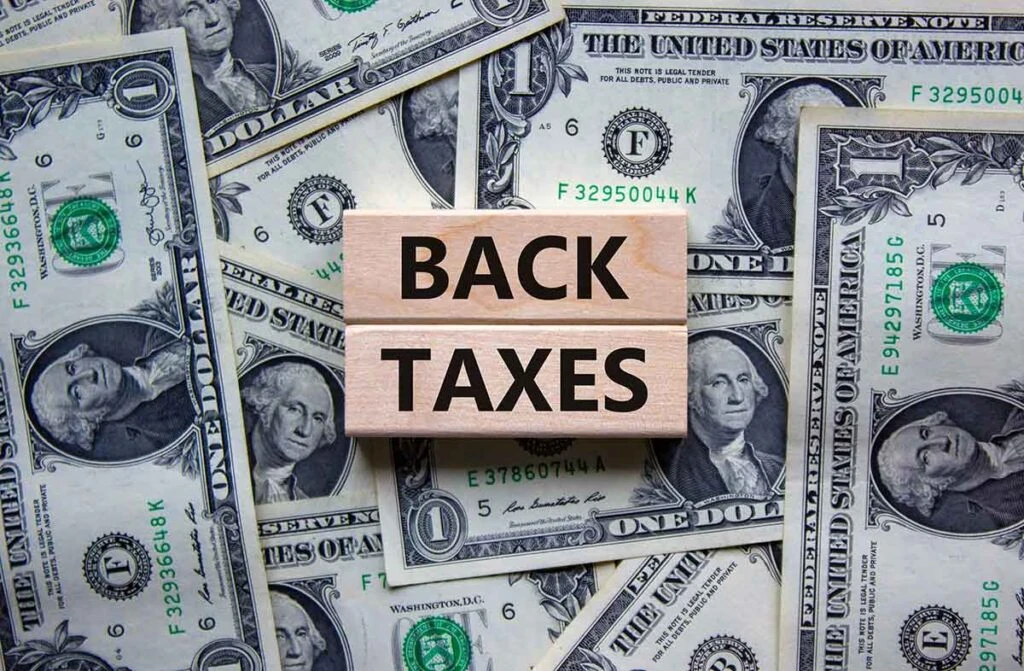FTB Tax Debt: Resolution Options and Consequences of Not Paying

In California, the Franchise Tax Board (FTB) collects personal and corporate income tax. The FTB collects about 70% of the taxes used to fund state activities, and this money is critical for the state to function. By extension, the FTB is serious about collecting taxes, and if you miss filing or payment deadlines, you will incur penalties and face collection actions.
Our tax attorneys can help you deal with the FTB. If you owe back taxes in California and want to talk about relief options, contact us today. At the W Tax Group, we are committed to giving out clients the personalized attention they need to deal with their state and federal tax problems. In the meantime, here’s what you need to know when you owe taxes to the FTB.
What If You Can’t Afford to Pay Taxes in California?
The FTB offers several programs for people who can’t afford to pay their taxes. Here are the main options. Ideally, you want to be as proactive as possible about applying for these programs. The longer you ignore your tax debt, the worse the situation can get.
Payment Plan on FTB Back Taxes
If you can’t afford to pay your balance in full, the FTB may let you set up a payment plan on your account. Businesses typically must pay off their tax liability in 12 months or less. Individuals can take up to five years to pay, but to qualify, they must owe less than $25,000 and be compliant with the last five years of filing requirements.
Even if you’re on a payment plan, the FTB may still issue a tax lien against you. However, setting up a payment plan will help you avoid levies and wage garnishments. If you don’t meet the typical requirements to set up a payment plan, you may still qualify — contact a tax attorney for help.
California Offer in Compromise
In rare cases, the FTB may let you settle your tax debt for less than you owe through the offer-in-compromise (OIC) program. To apply, you must complete one of the following applications:
- 4905PIT (Offer in Compromise Booklet and Application for Individuals) — This form is not available on the FTB’s website. You must contact the FTB or work with a tax pro to get the application.
- 4905BE (Offer in Compromise Booklet and Application for Business Entities ) — To obtain this form, contact the FTB directly, or reach out to a tax professional.
- DE 999CA (Multi-Agency Form for Offer in Compromise) — This is the form you should use if you owe money to the FTB, the CDTFA, and the EDD. You must send a copy to each agency to which you owe taxes.
All of these OIC forms require detailed financial information about your assets and income. The FTB will only accept your offer if it’s the most the agency could expect to collect based on your financial situation. If you can afford to pay more, the agency may require you to set up a monthly payment plan instead of approving your offer in compromise.
The FTB will respond to your application in two to four weeks, but you won’t get a decision for four to six months. If the FTB approves your offer, you must pay it in a lump sum.
Hardship Status on California Back Taxes
If you’re experiencing financial hardship, you can contact the FTB to request hardship status. To get relief, you may need to provide details about your financial situation. If you qualify, the agency will temporarily delay collection actions against you. However, you will still owe the tax debt.
Penalty Relief
If you prove that you had reasonable cause for paying or filing late, the FTB may agree to remove some or all of the penalties on your account. To apply, individuals should file Form 2917 (Reasonable Cause — Individual and Fiduciary Claim for Refund). Businesses can request penalty relief using Form 2924 (Business Entity Claim for Refund).
Consequences of Not Paying or Filing CA Taxes
In California, you can face severe consequences if you don’t file or pay your taxes. The FTB will assess penalties on your account, and the agency can also garnish your wages and seize your assets. Take a look at the consequences:
Penalties
The FTB will assess a penalty of 5% of the tax due if you don’t file on time. For instance, if you owe $2,000 and you file a day late, the penalty will be $100. The FTB assesses this penalty monthly, and it can get up to 25% of your balance.
Unfortunately, having a low tax bill doesn’t necessarily keep this penalty low. If you owe $540 or less, on your individual income tax return, the late filing penalty is the lesser of $135 or 100% of the tax owed. For instance, if you owe $200, your late filing penalty will be $135. If you owe $134 or less, your penalty will double your tax bill.
S-corps, partnerships, and LLCs taxed as partnerships can also incur penalties for filing information returns late. As of 2023, the penalty is $18 per partner/member/shareholder per month for up to 12 months. For instance, if you have two partners and you file three months late, the FTB will add a $108 penalty to your account.
What if you file but don’t pay? Then, you’ll incur a 5% late payment penalty plus a monthly penalty of 0.5% per month. The latter applies for up to 40 months, which means the total late payment penalty can get up to 25% of your balance.
The FTB also assesses penalties for bad checks, underpaying estimated taxes, and not making payments electronically if required. There is also a fee if you ignore a legal demand to file. This fee changes yearly. As of 2023, it’s $100 for individuals and unincorporated businesses and $81 for corporations.
If the FTB has to forcibly collect the tax debt (for example through asset seizure or wage garnishment), the agency will assess a collection cost recovery fee. This is $334 for individuals and unincorporated businesses. It’s $307 for corporations. There is also a fee for liens, but it varies based on the county or state where the lien was issued.
CA Tax Liens
A tax lien automatically attaches to your personal and real property when you owe taxes in California. If you don’t respond to letters or notices. the FTB will issue a Notice of State Tax Lien against you. The FTB reports the lien in the counties where you own real property, and it also files a lien against your personal property with the CA Secretary of State.
A tax lien is the state’s legal claim to your assets. It lasts for 10 years, and the FTB can renew the lien if you don’t pay by the time it expires. Liens are public records, and they make it nearly impossible to sell assets, borrow against assets, or take out loans. If you work in certain industries, a state tax lien can also make it difficult to obtain a job.
Loss of Federal Tax Refund
Through the Treasury Offset Program (TOP), the FTB can also seize your IRS tax refund to cover your unpaid taxes. Although you may receive a notice, the FTB doesn’t have to notify you in advance. The FTB can also seize refunds from other states. Similarly, if you owe federal taxes or taxes in another state, the IRS or the other state agency may seize your California tax refund.
Wage Garnishment
If you don’t pay your taxes, the FTB can send a wage garnishment order to your employer. The order will note how much you owe in tax, interest, and penalties, and it will instruct your employer to take funds from your paycheck and send them to the FTB. Your employer must give you a copy of the order 10 days after receiving it, and then, they must send payment within 15 days of the last pay period. The garnishment lasts until the debt is paid in full.
Tax Levy (Withholding Order)
The FTB can seize the funds in your bank accounts or other financial assets. This is called a tax levy, and in California, it’s initiated with a withholding order. The agency can also seize your personal property including property that belongs to you but is in the possession of a third party. This includes rent payments from tenants, accounts receivables due to your business, or even payments that your credit card processor collects for you.
How to Appeal Tax Assessments and Collection Actions
Just as you have the right to appeal IRS tax assessments, you can also appeal tax assessments and collection actions in California. When the FTB sends you notices, they should outline your appeal rights — make sure to respond by the date on the notice. You can write a letter explaining your appeal, or you can file Form 1037 (Request for Appeal Before the Office of Tax Appeals). Appeals can be complicated, and for the best results, you may want to work with a professional who understands the CA tax code.
How Long Does the FTB Have to Collect Delinquent Taxes?
The statute of limitations on tax collection in California is 20 years. This means that the FTB has 20 years to collect your unpaid taxes. The timer for the statute of limitations starts when the latest tax liability becomes due for that year.
To give you an example, say you file a state tax return for your 2021 taxes on April 15, 2022. The next year on May 3, 2023, the FTB assesses a collection cost recovery fee against you. This is considered to be the latest tax liability for the 2021 tax year, and the statute of limitations doesn’t expire until 20 years later. However, if the FTB issues a lien fee, an installment agreement fee, or a final notice of proposed assessment for the same year, that becomes the latest tax liability, and the timer starts at that point.
The IRS, in contrast, only has 10 years to collect delinquent tax debts. The way California starts its timer also varies from the IRS and most states. In most cases, the timer starts when the taxes are assessed — for example, the latter of the day you file your return or the date that the return was due.
There are also actions that can pause the clock on the collection statute of limitations. For example, if you apply for an offer in compromise, the FTB will stop the clock while reviewing your application. Then, the time will be added to the end.
Get Help With FTB Back Taxes
When dealing with state tax debts, you need a tax attorney who has experience in your state. At the W Tax Group, our tax attorneys focus exclusively on tax debt resolution, and we can help you deal with the IRS, the FTB, and any other state tax agencies. Don’t let unpaid taxes stress you out or ruin your finances. Instead, contact us for help today.


